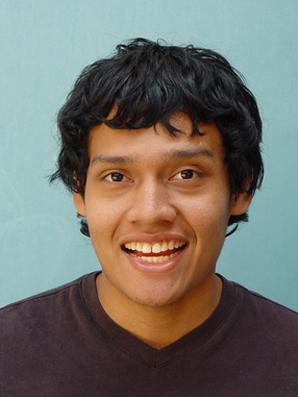Large funding gap remains
Proposition 30, which raises taxes to fund education, passed on Nov. 6, 2012, helping K-12 schools and colleges. Although the proposition is helping GCC raise money, there is still a big gap in funding.
With the college at a $3.8 million deficit, GCC Interim President/Superintendent Jim Riggs proposed financial reform to help the campus stay afloat, while boosting morale, student retention and funding for an emergency situation.
Although Riggs confirmed an incoming state grant of $2.5 million, he plans to apply for a federal grant for the campus and plans to integrate divisions to save money.
“We found that there were programs in our system that overlap with other programs,” said Riggs. “By integrating certain programs with similar programs, the college can do more with less, while keeping everyone employed.”
Ron Nakasone, executive vice president of administrative services, said it’s critical that the campus integrates programs to be efficient, while keeping everyone employed and saving funds to allocate to other areas of the campus.
“We might change healthcare providers or share the cost for employees,” said Nakasone. “We’re hoping that we don’t have to make pay cuts or furloughs.”
Riggs said the passing of Proposition 30, which raises sales tax to $6 billion in state budgets for the next four years, was vital to campuses in California, but it merely keeps the colleges afloat.
“Prop. 30 only helped the campus from not sinking any further,” said Riggs.
Approximately 150 classes were added to the spring 2013 semester, compared to the fall 2012 semester, due to new revenue from the proposition.
Mentioned in the president’s proposal, the college administration is trying to generate funds through basic student retention rates by reallocating resources in the Garfield campus to offer credit classes, as part of the “strategic master plan for the Garfield campus.”
The Garfield campus was recognized as a branch campus in 2007. It offers only non-credit, tuition-free classes to high school students and to those who want continuing education before applying to the main campus, as well as training for citizenship, GED and ESL classes.
Riggs’ plans to add credit classes to the branch campus to better incentivize students to stay in classes and to ease them into higher-level learning.
“After a student gets his or her GED at Garfield, credit classes and graduation are on the board for them,” said Riggs. “If the students can get a few units there, it would definitely raise retention rates.”
On the main campus, the biggest shift to save funds is to move the spring 2014 semester to mid-January, skipping winter semester and allowing up to two sessions in summer 2014. The move allows the campus to close for two weeks, which would save on maintenance and energy costs.
“Closing the campus for two weeks can help save the college around $300,000,” said Riggs.
Nakasone also said that the move to mid-January would also help students finish a year of classes in nine months, compared to the current 10 months it takes to finish a year’s worth of classes, allowing students to finish in May rather than in June.
Riggs also plans to keep students studying at Glendale by attempting to boost morale on campus. One way, Riggs said, is to make the college smoke-free.
“The campus is so small, that even if you’re not in a designated smoking area, you can still be exposed to it because of how close everyone is to one,” said Riggs. “Regarding our surveys, most students want this campus to be smoke-free.”
Riggs plans to make this campus smoke-free as early as fall 2013.
Although Riggs would like to reform the school into financial stability, he knows that the process could take years for the campus to return to prosperity.
Should the campus face an emergency, though, Riggs also wants to make a “rainy day” fund to keep the campus on its feet, while not harming the funds allocated for other programs.
“If we could get perhaps $500,000 on the side, for immediate emergencies, we could cover problems much faster,” said Riggs. “We don’t want another situation like the blackout that occurred in the fall to happen again.”
The money for the “rainy day” fund would come from the money saved by reallocating divisions together, moving the spring semester to mid-January and other funds the campus can put away for an emergency.
Amir Nour, the interim controller, said that even though Riggs has planned everything out, the campus won’t know if the overhaul would happen.
“We won’t know if this will happen until about May or June this year,” said Nour.
Should GCC be approved for the changes, the college will have a major overhaul in service, schedule and environment.
Recovering from a recession, the campus has to do more with fewer resources. Riggs said he intends for the college to be more efficient, but also more attractive for new and returning students, while providing a safe environment to learn.

